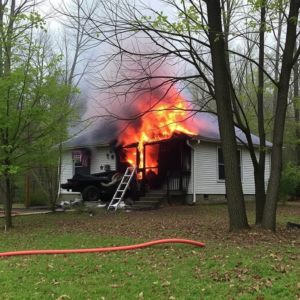What Makes Crock Pots a Must-Have for Safe, Stress-Free Meals?
With the fast paced modern lifestyle, kitchen appliances like crock pots have become a necessity for all busy people, or parents balancing multiple tasks, and even those who are just safety conscious in the kitchen. A crock pot is also referred to as a slow cooker and it is an electrical cooking unit that is made to cook foods at lower temperatures for longer periods of time as opposed to conventional methods such as baking or boiling.. However, a common concern among users is, “Can crock pots catch fire?”
Crockpots, in general, incorporate safety mechanisms to eliminate the chances of such occurrences, however, the appliance has to be used as per the guidelines provided by the manufacturer and proper maintenance observed to ensure safety. Such devices are not only efficient but help ease the cooking process, making it possible to concentrate on other matters.
Brands such as Crock-Pot, Hamilton Beach, and Instant Pot offer a variety of models that simplify meal preparation, saving you precious time. Just set your dish to the slow cooker, and attend to other important matters. Nonetheless, this advantage comes with emphasis on the safety – can crock pots catch fire?
Safety Tips for Using a Crock Pot
Understanding potential risks is crucial to preventing incidents. Here are some actionable tips to ensure your crock pot remains a safe and reliable kitchen companion:
1. Inspect Regularly: Prior to using any electrical appliances, inspect all cords and plugs for any signs of wear and tear. Since damaged wiring can cause fires in the appliances, make sure you attend to any and all worn or bare wires right away.
2. Avoid Overloading: If you put too much food in your slow cooker, it may spill out and overheat. It is best to adhere to the suitable maximum limit for cooking purposes and also to avoid any unnecessary risks.
3. Use on Stable Surfaces: Always ensure that the crock pot is placed on an even surface which can withstand heat and is elevated from the edges. This reduces chances of dispensing contents in case of tipping over, which could also lead to burns.
4. Stay Nearby: While slow cookers allow for unattended cooking, try to remain in proximity. A quick glance every so often can prevent potential disasters.
5. Unplug When Not in Use: After cooking, always unplug your crock pot. This habit prevents electrical malfunctions and conserves energy.
Reflect on the regretful case of a house fire in Lebanon, Tennessee, which was sparked by a slow cooker. A family went to work and left a roast in the oven only to come back home to fire. Slow cookers are mostly safe but can become dangerous.

Slow cookers are generally safe, but hazards may still arise.
Between 2017 to 2019, the Federal Emergency Management Agency documented 103 fires caused by slow cookers—a relatively low incidence compared to other kitchen appliances. However, no appliance is entirely risk-free. Experts recommend regular checks for wear and tear on appliance cords and advise against leaving them unattended for extended periods. Taking preventive measures effectively reduces risk, as demonstrated by the lack of injuries during these incidents. This data underscores the importance of appliance maintenance and awareness in ensuring kitchen safety.
If a fire does occur, quick action is critical. Evacuate the area, call emergency services, and if safe, use a fire extinguisher to contain the flames. Afterward, assess the situation. If there’s significant fire damage, consider exploring options like selling the fire-damaged house or engaging with buyers who specialize in purchasing such properties quickly. Always consult professionals to determine the best course of action.
To sum up, most crock pots are safe and work efficiently without causing any dangers when used appropriately, however it is important to comprehend the risks involved in such an appliance. The home cook or parent can therefore savior the pleasure of slow cooking without worrying about the safety concerns, thanks to these safety measures. Remember, appliance safety extends beyond usage—it encompasses maintenance and awareness of potential risks. Prioritizing these aspects can prevent hazards and ensure a safe cooking environment for you and your loved ones.
Previous